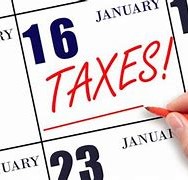This increase, highlighted in the NBS’s recent tax report, is attributed to hikes in both Value Added Tax (VAT) and Company Income Tax (CIT) receipts. The total tax contribution from this sector reached N185.19 billion in H1 2024, up from N124.39 billion in H1 2023, despite the ongoing economic challenges facing Nigeria.
The data reveals that VAT collections soared by 50 per cent, rising from N63.24 billion in H1 2023 to N94.76 billion in H1 2024, suggesting strong consumer spending amid a high inflation environment. Similarly, CIT saw a significant jump of 48 per cent, increasing from N61.14 billion in H1 2023 to N90.43 billion in H1 2024. This growth in CIT indicates that businesses within the sector remained profitable, even while contending with rising operational costs driven by inflation and macroeconomic headwinds.
When comparing H1 2024 to the second half of 2023, total taxes increased by 44 per cent, with the sector paying N128.68 billion in taxes in H2 2023—N74.86 billion from VAT and N53.82 billion from CIT. The sequential growth in tax revenue underscores stronger tax collection efforts and a steady pace of economic activity despite inflationary pressures.
However, the rise in taxes also reflects the impact of inflation, which has substantially increased the cost of goods and services, consequently boosting VAT collections. Businesses have faced higher input costs, fuel prices, and operational expenses, which have squeezed profit margins and led to higher tax obligations.
In Nigeria, businesses are burdened with over 60 official taxes and an estimated 200 unofficial taxes, with small enterprises struggling under multiple taxation from various federal, state, and local agencies.
Mr. Taiwo Oyedele, Chairman of the Presidential Committee on Fiscal Policy and Tax Reforms, highlighted the prevalence of unauthorized taxes disproportionately affecting small businesses, including petty traders and transport operators.
In response to these challenges, the Manufacturers Association of Nigeria (MAN) urged federal and state authorities to unify the taxes imposed on members, citing the detrimental impact on business growth. Additionally, the Federal Inland Revenue Service (FIRS) introduced the VAT Direct Initiative in July 2023, aiming to streamline VAT collection from the informal sector and curb multiple taxation.
Market traders participating in the VAT Direct Initiative will be exempt from VAT if their annual turnover is below N25 million. The FIRS is also leveraging federal authority to prevent unauthorized tax collection by non-state actors.
In December 2023, the FIRS launched the Integrated Market Revenue Management System (IMRMS), a digital platform designed to incorporate the informal sector into the federal tax framework. This initiative aligns with the VAT Direct Initiative, promoting awareness of VAT collection and remittance in the informal economy.
The federal government aims to reduce official taxes to a maximum of ten and has recommended that state and local governments suspend “nuisance taxes” that do not contribute meaningfully to revenue generation. New tax regulations have been introduced to amend existing laws and alleviate the burden of multiple taxation on business owners in Nigeria.





